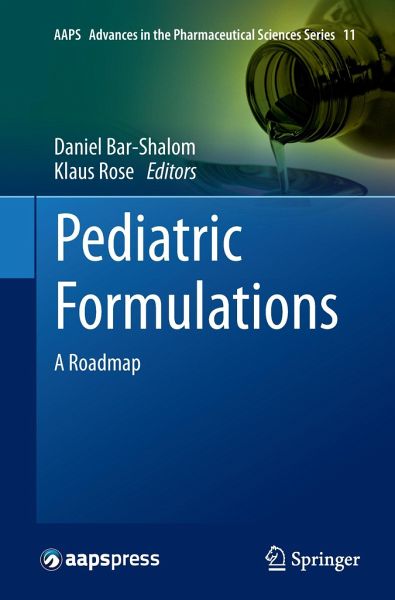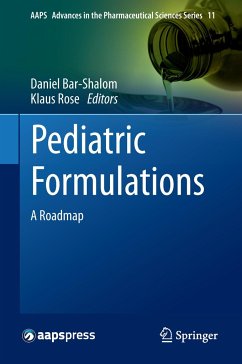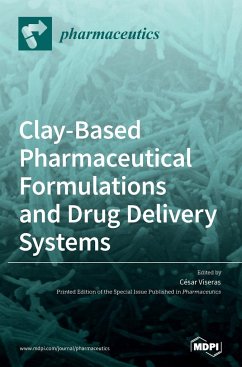
Pediatric Formulations
A Roadmap
Herausgegeben: Bar-Shalom, Daniel; Rose, Klaus
Versandkostenfrei!
Versandfertig in 6-10 Tagen
121,99 €
inkl. MwSt.

PAYBACK Punkte
61 °P sammeln!
Until the 1990s, it was generally accepted that medicines were first developed for adults and their use in children was investigated later, if at all. One of the main tasks of hospital pharmacies was the manufacturing of child-appropriate formulations in a more or less makeshift way. The first change came in 1997 with U.S. legislation that rewarded manufacturers to do voluntary pediatric research. Ten years later, the European Union passed legislation that required manufacturers to discuss all pediatric aspects, including formulations, with the regulatory authorities as a condition of starting...
Until the 1990s, it was generally accepted that medicines were first developed for adults and their use in children was investigated later, if at all. One of the main tasks of hospital pharmacies was the manufacturing of child-appropriate formulations in a more or less makeshift way. The first change came in 1997 with U.S. legislation that rewarded manufacturers to do voluntary pediatric research. Ten years later, the European Union passed legislation that required manufacturers to discuss all pediatric aspects, including formulations, with the regulatory authorities as a condition of starting the registration procedure. In consequence, manufacturers must now cover all age groups, including the youngest ones. So far, pediatric formulations were more a focus for academic researchers. Through the changed regulatory environment, there is now a sudden high commercial demand for age-appropriate formulations. This book begins by highlighting the anatomical, physiological and developmental differences between adults and children of different ages. It goes on to review the existing technologies and attempts to draw a roadmap to better, innovative formulations, in particular for oral administration. The regulatory, clinical, ethical and pharmaceutical framework is also addressed.














